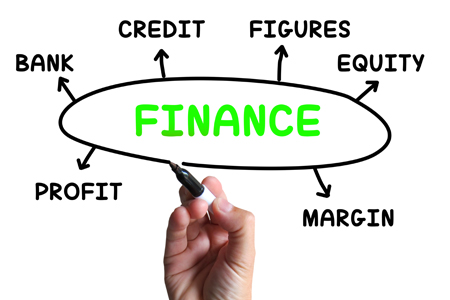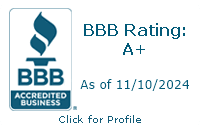What Is The True Value Of Your Business?

What’s the value of your business? It’s hard to find for the owner of small and medium size businesses. Why? Unlike publicly traded companies on the New York Stock Exchange, where the cost of individual shares are posted every day, there is no comparable exchange to find out the value of entrepreneur-based businesses. The true value of a small or mid-size business can only be determined with a business valuation from a person who has been certified as a business value expert.
What does a business valuation give the business owner? It will show the business owner the worth of the business as a going concern, as opposed to the simple value of building and equipment, which is offered by business brokers. A thorough business valuation looks at more than simply the value of the real estate and equipment. It takes into account many of the intangibles which add to the worth of the business. A certified business value expert will also take a look at similar companies in the same marketplace and industry to see how it compares.
Determining what your business is really worth requires looking beyond tangible assets to determine a company’s true value. Although a business might have significant investments in equipment and other assets, there is far more to the value of the enterprise than merely capital goods and inventory. The true value of the business includes intangible assets which include such things as “sweat equity” that has been built up over the years from both owners and employees. Moreover, “goodwill,” such as that which results from great customer service translates can significantly increase the worth of the business and would add to the how attractive the business would be to an outside buyer.
Goodwill and intangibles are two very important value drivers for privately held companies. These may also include:
- Established relationships with clients, other subcontractors and suppliers;
- A reputation for quality service and/or maintenance, which provides word-of-mouth referrals from satisfied customers;
- A community filled with showcase projects, resulting in highly visible advertising;
- A strong sales team familiar with the local industry trends; and
- Employee training and professional development programs to gain skilled, efficient workers.
A business valuation also can quantify value enhancers derived from established operational history, successful bidding history, product and service diversification, established market share and repeat business, to name a few. Efficiency and processes that lend to waste reduction also contribute to enhanced business value. Conversely, litigation, workers’ compensation claims, and high employee turnover deflate goodwill value.
Key Benefits
Think of the business valuation as a multifunctional planning tool that enables an owner to answer important questions such as:
- What if I get an unexpected offer from a potential buyer? If you receive an unsolicited offer to sell the business, you may not have time to wait to have an appraisal completed. Having a current valuation will enable you to make informed decisions quickly.
- What’s my exit strategy? Options may include: sell to a third party, transfer to a family member, or sell to a key employee.
- Do I have adequate life insurance for my business needs? Knowing the worth of a business is a prerequisite for assessing the required amount of life insurance to fund buy-sell agreements.
- What’s the return on my investment (ROl)? Establishing a benchmark value to compare to the owner’s original investment provides a reasonable estimate of the ROI.
- What is my company’s intangible value? Correctly assessed intangibles can increase a company’s total market value by up to 50%.
- Will I be able to obtain financing? A valuation assists lenders in the process of qualifying applicants.
- Will proceeds from the sale of the business fund my retirement? Knowing the value of the business facilitates ease of retirement planning.
- How much is my estate worth? An accurate determination of the business’ value enables an owner to implement estate tax minimization strategies.
Experience Makes the Difference
Every industry is unique. Some can be more complicated than others to value. Therefore, it is essential to engage only an experienced valuation professional who knows the unique valuation issues, specific to the business’ industry, such as:
Equipment and materials. How often is equipment purchased or updated? Does the company conduct periodic maintenance and repairs? At what rate does the raw material and product inventory run over, and how much is kept in stock?
Certification and education. What certifications do employees have? Are they regularly educated on new techniques?
Litigation. Do litigious claims exist, such as workers compensation or environmental issues?
Employees. What is the required skill level? How are experienced workers retained? What benefits are offered and can the company afford to maintain those benefits?
Pricing. How does a rise in material costs affect the company, and are new jobs priced to reflect the change accordingly?
Competition. How are new clients gained and existing clients retained?
Some of the most common mistakes made when valuing a privately held business are: relying solely on an industry formula to determine value; thinking the sale of a competitor’s business is a good indicator of value; and failure to consider the tax implications of improper estimates.
Keep It Current
Update the business valuation every two years to ensure a current, accurate assessment of ownership value. Or, if the business grows substantially in one year, or experiences a significant event, reassess more often.
For most owners, their businesses are their most valuable investment, yet, very few are able to say with any level of confidence what their firms are worth. Approximately 75% of company owners invest their own net worth into their businesses, and many will never again see the materialization of their full investments.
Savvy business owners know their company’s worth, so that they can make sound decisions and plans and maximize their ROI.


